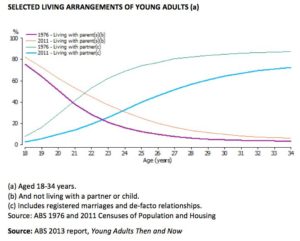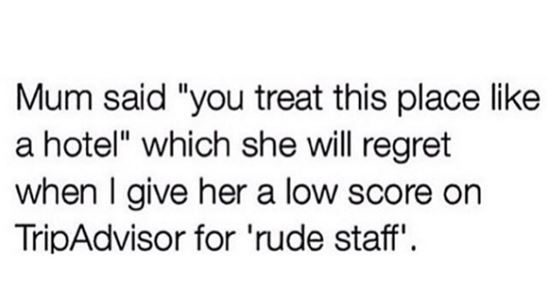They are the ‘Boomerang Generation’ – and they’re becoming the norm.
A Homeloans.com.au survey found 57 per cent of people had moved back home to their parents, while 16 per cent had moved in with their in-laws.
Half were couples and another 20 per cent had the grandkids in tow.
With the average house price now sitting at $623,000 – and a huge $995,000 in Sydney – over 75 per cent of respondents said money – and saving a house deposit – was the main reason.
Home sweet home?
Many of these ‘Boomerangs’ didn’t pay any rent or board either, with people aged 18-25 the most likely to not pay up.
Generation Y were also less likely to lend a hand, with more than 25 per cent listing housework as a cause of “friction” and 40 per cent leaving the cooking to mum and dad.
Space and privacy were a sticking point too. “More than one third of respondents didn’t have separate quarters or even a bathroom of their own,” Will Keall, national marketing manager of Homeloans.com.au said.
Putting a dent in retirement plans

While letting kids live in the family home – while paying rent or board – can be a way to practically support children without giving them money, if children are not leaving home because of debts or they’re living a lifestyle they can’t afford then you shouldn’t have to bail them out.
There was some good news for ‘Boomerang parents’ dreaming of having an empty nest with 63 per cent of those who moved in with their parents or in-laws heading back out again within 12 months.
But beware – one in five of Western Australia’s boomerangs revealed they stayed for more than two years!
Do you have children back in the nest? What are your tips for living together? Tell us below.




Discussion1 Comment
I agree that 18-25 year olds living at home is “Putting a dent in retirement plans.” This is an important issue.
But considering extortionate house prices along with stagnant wage growth and rising rents: How can 18-25 year olds avoid boomeranging back to their parent’s home? Can a young adult achieve the lifestyle his or her parents had when they were younger?
Instead of just blaming millennials for cutting into retirement savings, I think there is also a bigger opportunity here: How can we work together to ensure the boomers and all future generations have a retirement to look forward to?
Let’s develop a positive solution for everyone.